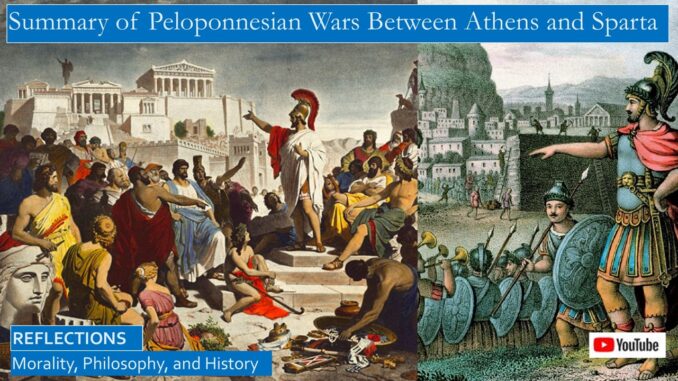
The Peloponnesian Wars pitted Sparta, Corinth, and her allies against Athens and her sometimes unwilling allies in the Delian League, which was formed as a defensive league against Persian encroachment. These wars were fought in roughly two phases lasting over three decades, many historians say they are the World Wars of the ancient world.
Why study the Peloponnesian wars? One main reason is: You cannot understand the Platonic dialogues without first understanding the history of the Peloponnesian Wars, because so many of the leading figures of this period are referenced in the Platonic dialogues, and we can learn many moral lessons from the war, which changed the Greek city-states forever.
The history of the war includes many interesting personalities, including Pericles, the founder of the radical democracy of Athens who died in the first years of the war, and Alcibiades, the ladies’ man and charismatic personality who was a leader of all three sides of the antagonists of the war, and we have the Spartan general Lysander who spared Athens from destruction when she lost the war.
Script for this video, with more Amazon book links: https://www.slideshare.net/BruceStrom1/summary-of-peloponnesian-wars-reflecting-on-herodotus-thucydides-xenophon-and-plutarch
YouTube video for this blog: https://youtu.be/SW9Zq4IiLF0
GRECO-PERSIAN WARS
The root causes of the Peloponnesian Wars originated in the politics after the Greco-Persian Wars, in which the underdog Greeks defeated the mighty Persian Empire. Although this could not have been predicted at the time, the Greek forces won due to excellent generalship, bravery and persistence, the excellence of the Greek infantry hoplite formations, the excellence of the Athenian navy, along with good fortune and luck, or as the Greeks would say, the favor of the gods. https://youtu.be/JjNcyLo54ko
The main source for the Greco-Persian Wars is Herodotus, Father of History, and according to some scholars, also the Father of Lies, or at least tall tales. But an excellent secondary source is Aeschylus’ play, the Persians, which was likely an eyewitness account of the Athenian naval Battle of Salamis, which was one of the two battles that won the war for Greece. Plutarch also has an excellent Life of Themistocles, whose wily and deceptive tactics compelled the Greeks to victory in the naval Battle of Salamis. https://youtu.be/cabAkQwHnlk
STAGES OF THE PELOPONNESIAN WARS
The Peloponnesian Wars followed the Greco-Persian Wars by about fifty years, or as Thucydides describes it, the Pentecontaetia.
In addition to Thucydides, the other major source is Plutarch’s Lives of the Noble Greeks, Aristides and Cimon. These two Athenian generals who were asked by the Greek colonies of Ionia near the western shores of Asia Minor, today Turkey, to organize and lead the defensive Delian League against Persia, because the Ionians were wary of the bullying ways of the Spartan general Pausanius. The Delian League evolved into the Athenian Empire, which was the ancient equivalent of the British Empire.
Many victories were won against the Persian Empire, and some colonies questioned whether they needed to continue paying tribute to the Delian League, since Persia had been defeated. Under the Athenian leader Pericles, this League developed into a politically oppressive Athenian Empire, although many Athenian allies benefitted commercially from the expanded trade opportunities.
Pericles was the general and statesman of Athens before and at the start of the Peloponnesian Wars. The decades between these wars saw the rise of Pericles and the reforms leading to the Radical Democracy of Athens before the start of the Peloponnesian Wars. In these years, the mandatory tribute paid by the allies of Athens funded the massive building program of Athens on the Acropolis, including the Parthenon, which tourists admire up to the present day.
Sparta and her allies became concerned and suspicious as the Athenian Empire grew in power and influence, and conflict was inevitable. Although the Cold War historians distorted their interpretation of these wars by comparing Athens to America and Sparta to Russia, since all Greek city-states had popular Assemblies, they were more alike than they were different. The difference was that the Spartan Assembly was dominated by aristocrats, while the common citizen and trireme rowers dominated the Athenian Assembly. Ideology did play a role, Sparta encouraged her allies to a adopt an aristocratic government, while the Athenians encouraged her allies to adopt a radical democracy with broader representation.
Plutarch writes that the Spartans, “invaded Attica, laying waste to the land. They assumed that the Athenians would not let them get away with this but would be prompted by anger and pride to fight them. But the idea that they should join battle in defense of their city with sixty thousand Peloponnesian hoplites struck Pericles as outrageous. He proceeded to pacify those who were spoiling for a fight and were upset by what was happening, arguing that the (olive) trees soon grow again even when they’ve been hacked and chopped, but that it is not as easy to recover men once they have been killed.”
Why was Pericles successful in selling the citizens of Athens on the strategy that, when the Spartans raid Attica, the Athenians retreat behind their walls, with the city providing them grain shipped in through their ports, watching helplessly as the Spartans torched their fields and smashed their houses, year after year after year? Indeed, many Athenians were itching to put on their hoplite armor and confront the Spartans, and they had defeated the Spartans in prior hoplite engagements, and it was the Athenian hoplites that routed the Persian infantry in the Battle of Marathon.
When the Spartans invaded Attica, although the Athenian hoplites did not face them in direct combat, the Athenian cavalry did harass them. While the Spartans ravaged the Athenian countryside, the Athenian hoplites simply marched between the long walls that connected Athens to its ports, and boarded triremes to ravage the Peloponnese lands near the coast, and harassed shipping and the navies of Corinth and the other Spartan allies.
Many historians agree with Thucydides, that Pericles was a strategic genius, that one reason why his successors lost the Peloponnesian Wars was that they strayed from his strategy. But some modern historians speculate that this strategy, by increasing both the brutality of the fighting and the suffering of the ordinary citizens, lengthened the war, hardening hatreds and ensuring there would be opposition to any attempts to settle their differences diplomatically, seeking peace.
PERICLES FUNERAL ORATION
Pericles was a skilled orator, and Thucydides’ rendering of his Funeral Oration has often been compared by scholars to Lincoln’s Gettysburg Address in the American Civil War. We also compare these speeches to Churchill’s speech honoring those RAF airmen who fought the Luftwaffe bombers in the Battle of Britain, which prevented the invasion of England by Hitler in the beginning of World War II, who can forget his stirring words, “never before in history have so many owed so much to so few.” The core of this famous ancient oration was no doubt delivered by Pericles, but how much is elaboration by the historian Thucydides we will never know, as he himself admits that many of his speeches include what the orator must have said.
Pericles died of the plague in the second year of the Archidamian War, the first phase of the Peloponnesian Wars. Plutarch’s Life of Pericles is an outstanding secondary source, in addition to Thucydides.
Both Sparta and Athens tired of the constant warfare, and the Athenians had captured Spartan hoplites who were members of the leading families of Sparta, so Sparta was eager for an exchange of prisoners of war. After the leaders who were eager to continue the war, the Demagogue Cleon of Athens and general Brasidas of Sparta, both died in the Battle of Amphipolis, the Athenian general Nicias was able to negotiate a peace that held for six years between Athens and Sparta, called the Peace of Nicias. This was a fragile peace where low-level hostilities continued, particularly by the Spartan allies. The up and coming relative of Pericles, Alcibiades, was jealous of Nicias, and this clouded his judgment, and hastened the restarting of the wars.
Plutarch’s Life of Nicias is a secondary source, in addition to Thucydides.
The comic Aristophanes performed an anti-war play “Peace” on the Peace of Nicias, showing that this peace had popular support in Athens. We also pondered whether Pericles started the war needlessly.
The Peace of Nicias was broken when the up-and-coming Alcibiades, who was raised in the household of Pericles, agitated for Athens to send out a large portion of its triremes, plus thousands of hoplites, in the doomed Sicilian Expedition. The talented general Alcibiades was indicted on trumped up charges and went into exile in Sparta when his conviction appeared certain. When the Syracusans defeated the dilatory and timid Nicias, who was serving as the other general of the expedition, the Athenians lost everything, triremes, hoplites, rowers, even generals, including Nicias, were destroyed and slain, very few escaped, and Sparta restarted the war in response to Athenian aggression and taking advantage of her loss in Sicily. This led to eventual defeat of Athens in these wars many years later.
Thucydides is concerned with the moral lessons that can be learned from history. Three battles from this general period of the history of the wars stand out.
- In the Revolt at Mytilene, in the early years of these wars, the Athenians voted for harsh measures, calling for the men to be slaughtered and the women and children to be enslaved, but calmer tempers prevailed, and the next day the Assembly reversed its position. This more merciful message was dispatched on a trireme where the men rowed throughout the night, eating their meals on the boat rather than on the beach, and reached Mytilene in the nick of time, saving the Mytilenians.
- In the Revolution at Corcyra, we are reminded that war often brings simmering conflicts to the surface, and during the conflicts there were several civil wars between the aristocrats and the ancient equivalent of the middle classes.
- After the Melian Dialogue, in the latter years of these wars, the Athenians voted for harsh measures, but due to the moral decay during the course of these long wars, the men were slaughtered, and the women and children were enslaved. When Athens lost the war, they were chewing their nails hoping that the Melian outrage would not be held against them by the victorious Spartans.
In the ancient world, the brutality of a conquering hostile state massacring military age men and enslaving the women and children was all too common, this an piracy was the source of slaves in the ancient world. This was the fate of Troy when she was conquered by the Greeks in the Trojan War.
https://youtu.be/DpmuhZJUJn0 and https://youtu.be/ynIx-AVI2f8 and https://youtu.be/bGHHD7XTvr0 and https://youtu.be/7lI2ZQ50wRc
After the disastrous Sicilian Expedition, Athens slowly recovered over the next few years, though many of her allies rebelled. What happened to Alcibiades after he fled the Athenian fleet to avoid facing a hostile jury in Athens on trumped up charges?
Alcibiades talked his way into the good graces of the Spartans in speeches at their Assembly, became the pro-typical Spartan, exercising like a Spartan and eating the course Spartan gruel, and offering valuable military advice that helped Sparta gain the edge in the war.
But Alcibiades being Alcibiades, he could not resist sleeping with the king’s wife. After she gave birth to their son, the outrageous Alcibiades fled to the court of the Persian satrap, Tissaphernes, who was allied to Sparta. He advised Tissaphernes that he should not decisively support either Athens or Sparta but keep them evenly matched so they could wear each other out, so Persia could then swoop in and take over.
Alcibiades maneuvered to be reappointed as general of the Athenian forces, and likely could have won the war for Athens if the Athenian Assembly were not so judgmental and hyper-critical of his efforts and his mistakes.
Which means that Alcibiades first led the Athenians, until they indicted him on trumped-up charges, then he was an advisor to the Spartan king, until he slept with his wife, then he was an advisor to the Persian satrap, until he managed to be elected as maritime general for the Athenian fleet at the island of Samos. How did he manage this? You will need to listen to the longer videos for more clues. Alcibiades continues to amaze historians.
Alcibiades was close to Socrates. Plutarch comments, “the fact that Socrates was in love with him strongly suggests that the boy was endowed with a natural aptitude for virtue. Socrates saw Alcibiades’ good looks as the brilliant external manifestation of this excellence.”
Alcibiades had a remarkable run of victories over Sparta and her allies for five victorious years. But after a minor tactical defeat, Alcibiades was deprived of his command for the second time, choosing to go into exile once again. The Athenians continued to be victorious. Sometime afterwards, the Athenian generals won great victory in the Battle of Arginusae, but in the chaos of battle, they failed to expeditiously to rescue many Athenians rowers who were clinging to the wreckage of their triremes.
Suddenly, a fierce storm arose, and not only were the men drowned, but their bodies were swept out to sea and were not recovered. This was traumatic to the Athenians, for they believed that if you were not properly buried when you died, your soul would never come to rest in the Underworld but would forever wander the earth as a forlorn ghost.
Acting in haste, the Athenian Assembly, executed six of the ten generals for failing to save these rowers or recover their bodies, even though they had won a great victory. These proceedings were illegal because the generals were tried simultaneously by the Assembly, not in individual jury trials, and were denied sufficient time to defend themselves.
The inexperienced generals replacing them lost the war to the Spartan general Lysander when their carelessness permitted the enemy to destroy the Athenian fleet of two hundred triremes on the beaches. Ironically, Alcibiades’ castle was not too far from the Athenian fleet, and he tried to warn the Athenian generals that the fleet was exposed to attack, that they should move the fleet to a protected harbor, but the generals ignored his wise advice.
Thucydides’ History of the Peloponnesian Wars halted mid-chapter, mid-sentence, and was resumed by Xenophon’s History of Our Times. In Plutarch’s Life of Lysander, he also explores why Lysander and the Spartans showed mercy on Athens when she lost the Peloponnesian Wars. Diodorus Siculus is also an important secondary source.
Scholars generally say that the “crisis of the Athenian polis” happened after the end of the Peloponnesian Wars, when the victorious Spartan commander Lysander insisted that, as part of the terms of peace, the Athenians set up an aristocracy under the rule of the Thirty Tyrants. Although the previous tyrants in the sixth century BC were benevolent tyrants, the Thirty were Tyrants of the worst kind, dominated by the vicious Critias, a tyranny that quickly descended into an orgy of bloodshed directed first against their enemies, and then against their fellow aristocrats so they could seize their property. This misrule preceded the reestablishment of the Radical Democracy of Athens, and the events of the Thirty Tyrants cast a long shadow over Athenian history and the Platonic dialogues.
Alcibiades and Critias, who was the leader among the Thirty Tyrants, were both students of Socrates, and this fact harmed the reputation of Socrates, and contributed to his trial and execution shortly after the democracy was reestablished after the Thirty Tyrants were overthrown.
The rule of the Thirty Tyrants devolved into a civil war. Both Plato’s and Xenophon’s Symposium have guests who were part of the tyranny, and guests who were victims of the tyranny of the Thirty Tyrants.
Our first video on the Symposium includes the discussions on Romantic Love, and in the second video Socrates tells us what the entrancing Diotima taught him about Divine Love. Plato’s Symposium ends with Alcibiades crashing the party as a living example of Romantic Lust that is not divine, as he tells the guests how Socrates declined his advances, and how much he respects and admires Socrates for his higher moral values and higher love.
HOW DID THE PELOPONNESIAN WARS AFFECT ATHENS?
The most drastic consequence of the wars on Athens was the casualty rates, The total casualty rate must have exceeded fifty percent of the Athenian hoplites and rowers, and civilian casualties were also high. After the war, Athens must have been a city mostly populated by widows and orphans. Historians don’t often discuss the effects of these massive casualties that easily dwarfed the American casualties of the Civil War as a percentage of the population, and probably even the Russian and German casualties of World War II. We can estimate the casualties best for Athens, in addition to the casualties of decades of heavy fighting, we can estimate that a quarter of the armies were wiped out in the Plague, maybe another quarter in the doomed Sicilian Expedition, maybe another quarter were slaughtered when Lysander captured the Athenian fleet due to their carelessness, plus those whom the Thirty Tyrants executed afterwards.
These perpetual large-scale wars did not end. The peace once again simmers for a decade, but then the Corinthian War, and then the Boeotian Wars erupt. The account of these wars dominates Xenophon’s Hellenica, History of My Times, that begins by documenting the end of the Peloponnesian Wars. Though perhaps not as destructive as the Peloponnesian Wars, large-scale wars are waged for another three decades. Sparta is eventually defeated by Thebes, who frees her Mycenean helot slave populations. These perpetual wars left all Greek city-states in a weakened state, vulnerable to takeover by the expansionist Macedonia under King Philip and his son Alexander the Great in a later generation.
DISCUSSION OF THE SOURCES
The ancient historians we rely on for this history is Herodotus, for the history of the Greco-Persian Wars, and in the next generation, the Athenian general Thucydides, who became an historian after the Athenian Assembly voted to exile him after a military defeat, which was likely not justified.
Although Thucydides lived through the war, his account drops off in mid-paragraph and mid-sentence soon after the Oligarchic Coup, after Alcibiades was recalled as general, and Xenophon literally begins his history, “After those events.” Xenophon was known in antiquity as an historian, a general, and a philosopher, a moral philosopher in the Stoic mold, and was highly regarded by both ancient and medieval scholars, although is deprecated by many modern scholars, but not by this channel!
The Roman historian Plutarch, in his Lives of Noble Greeks and Romans, writing four centuries later, is a valued source, as he consulted many sources that have since been lost in the sands of history.
Since all our videos on the Peloponnesian Wars use many of the same sources, we have a video on Book Reviews of ancient Greek history.

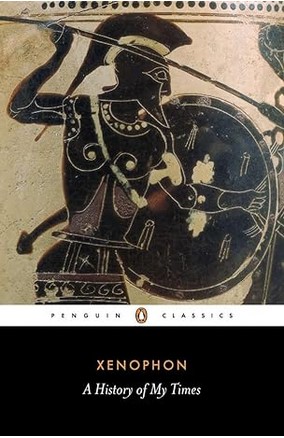
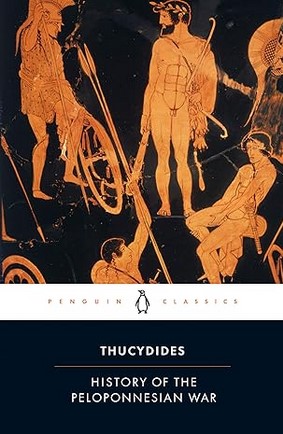
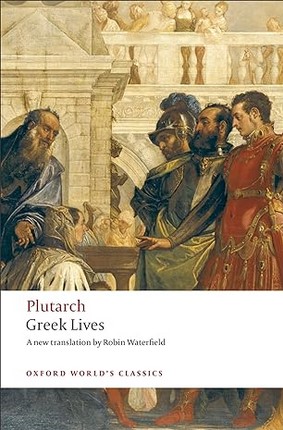
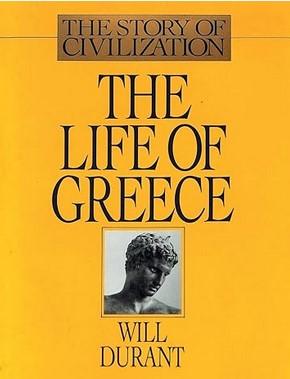

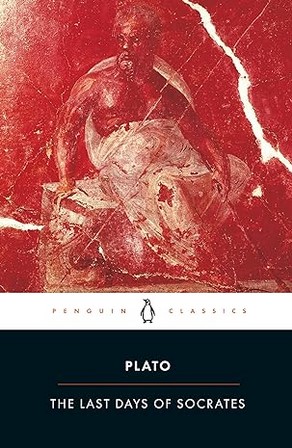
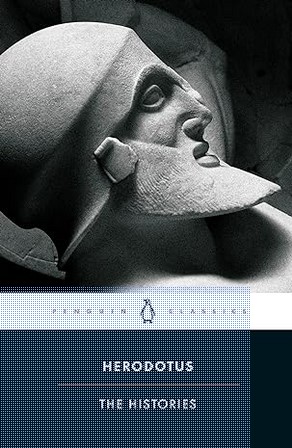
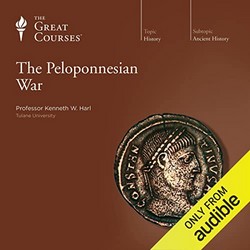
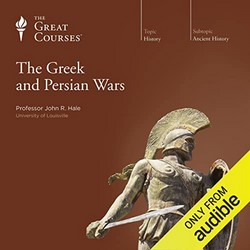
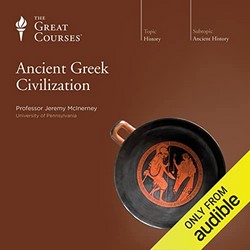



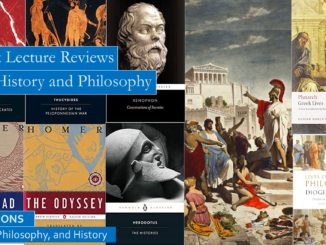
4 Trackbacks / Pingbacks